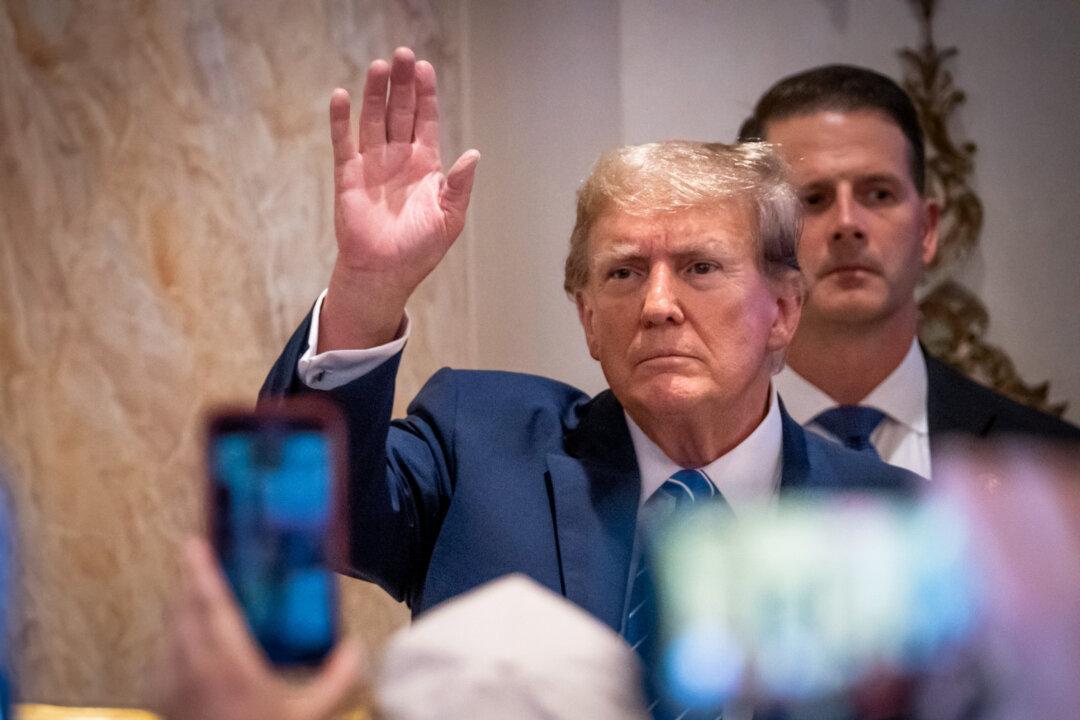Attorneys for former President Donald Trump argue that Manhattan District Attorney Alvin Bragg must be prohibited from using the “fanciful and elaborate narrative” that his case is an election interference case.
The district attorney has charged President Trump with 34 counts of falsifying business records, but the rhetoric surrounding the case has extended beyond the actual charges.





